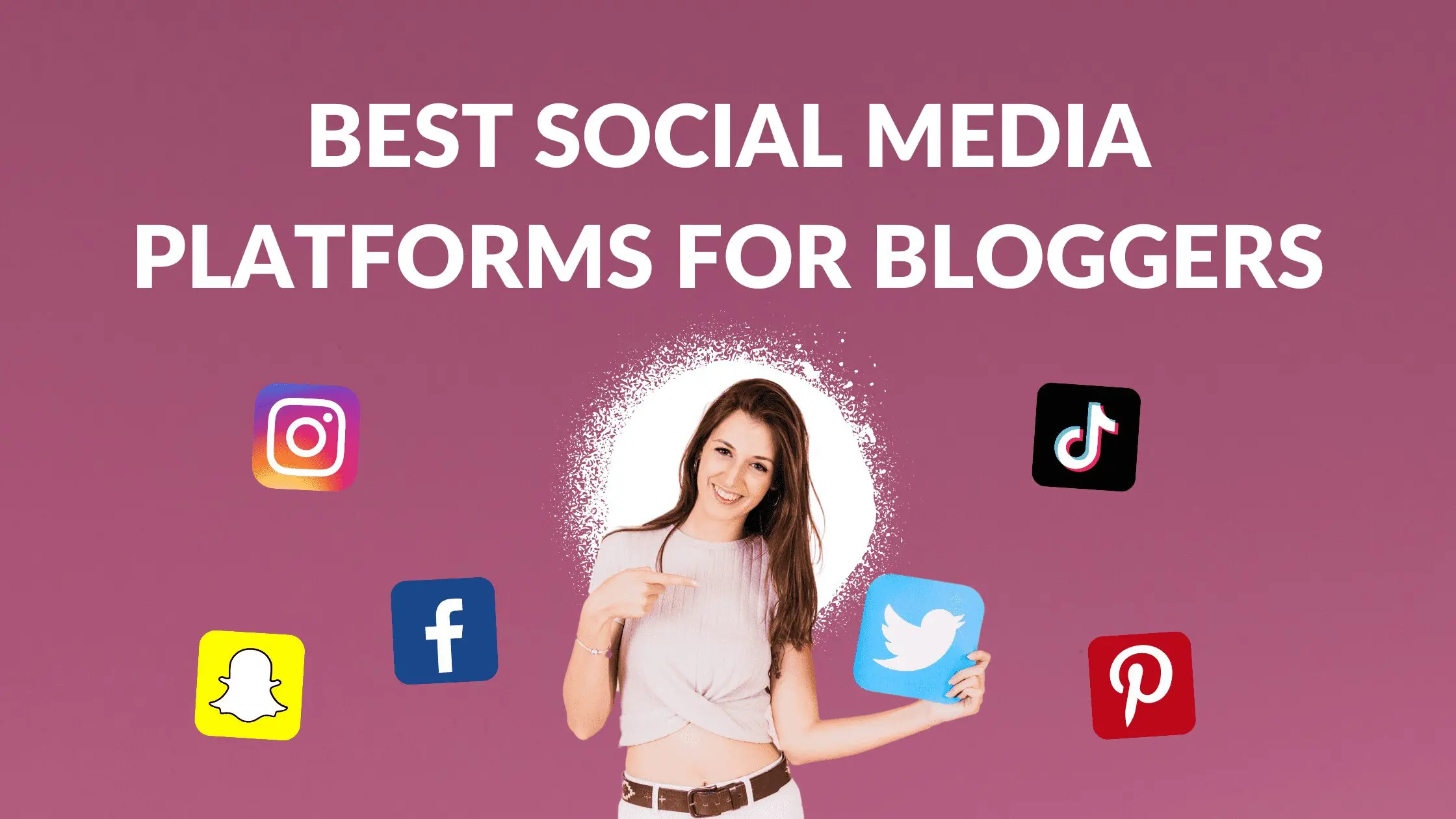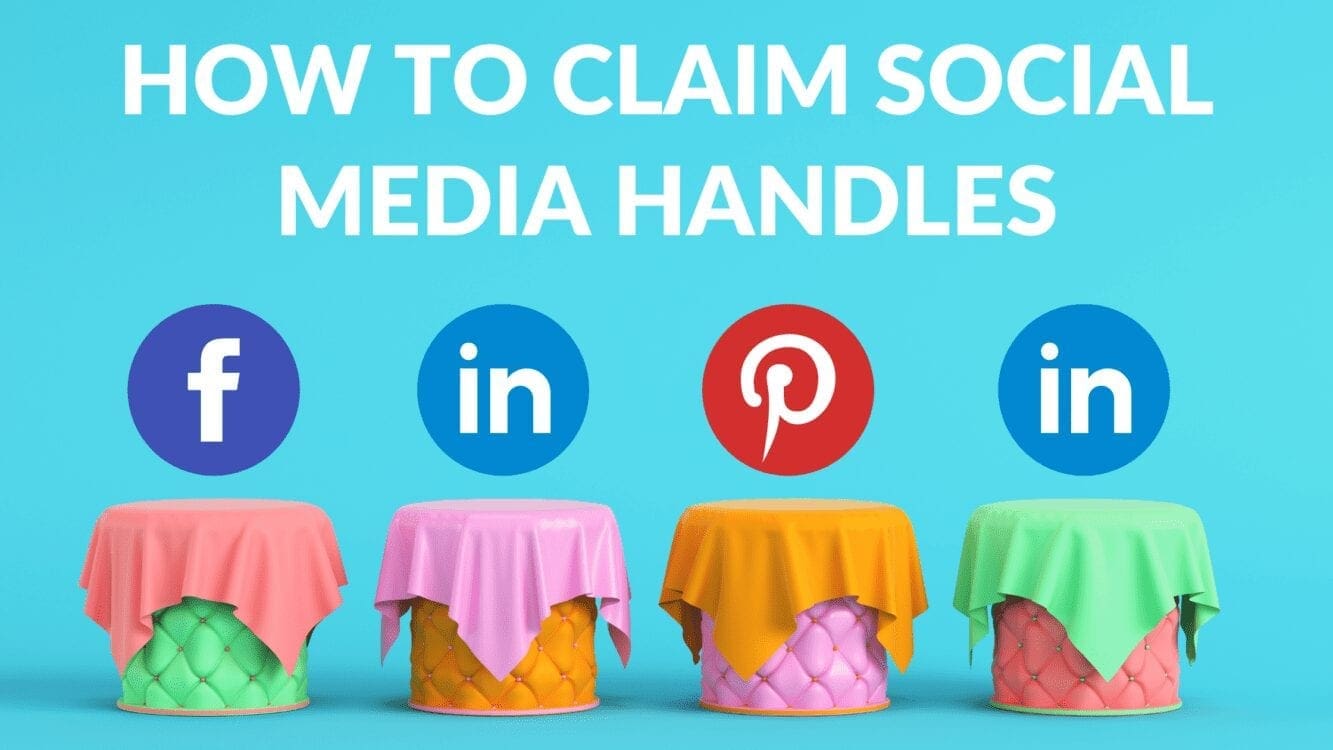Best Social Media Platforms for Bloggers

Written by Casey Botticello
Disclosure: Some of the links below are affiliate links, meaning that at no additional cost to you, I will receive a commission if you click through and make a purchase. Read our full affiliate disclosure here.
Social media and blogging are sometimes seen as in conflict with one another. In fact, they actively complement each other’s roles online, bridging the gap between people looking for information and the creators looking to reach them.
Bloggers use social media to tap into rich new markets across various platforms, using different techniques. From marketing and promoting their blogs to posting content directly to these highly trafficked platforms, social media sites for blogging are a valuable tool and resource.
We explore the best social media platforms for bloggers and unpack some of the information that will help you choose which ones are best to give your blog the reach, exposure, and opportunities to engage it deserves.
Blogging and Social Media

If blog websites were towns and cities, search engines would be the roads, airports, and train stations that link them together. On a more granular level, if blog posts were individual shops, outlets, and information booths, social media is the bars, restaurants, and social hotspots where people chat, engage, and share. While blogs have been around a lot longer than social media, they’ve always been there for one another. Blogging with social media is a natural fit.
The job of the blog
Bloggers actually need to reach audiences for people to read their blog posts. And, without a means of making those readers aware of a blog post, getting onto their screens can be tough. So bloggers employ various means to get the word out about their content. From email marketing and SEO for bloggers to paid advertising, digital marketing, and, yes, social media, bloggers have many options for getting the word out.
Before social media, bloggers relied almost exclusively on blogging platforms like – Ghost and Blogger – and Google to get their blogs into the market. And these methods were beginning to get more demanding and competitive.
Enter social media
Then social media came along. Bloggers didn’t completely abandon the tried-and-tested methods – Google, email, and blogging platforms are still the most popular mechanisms to market and promote blog content. But the many new channels and opportunities that came with this digital revolution suddenly meant bloggers could tap into an incredibly vast global audience faster and more affordably.
Social media has grown into a dominant internet resource that almost everyone with an internet connection has or currently uses. Over 4.7 billion people (out of the 7.8 billion on Earth) use social media daily or intermittently. That’s almost 60% of the planet, making the communication method the biggest market in history.
Blogging meets social media
Bloggers realized the potential these sites and platforms had for their blogs a long time ago. They continue to use blogging with social media to reach into markets that Google isn’t able to give them access to.
While Google decides who gets the most exposure based on bloggers creating content that abides by their rules, with social media, anyone can get high-level exposure – it all depends on you – and the social media platform you choose to do it with matters.
What Bloggers Use Social Media For

Social media is used primarily by bloggers for marketing their blogs, promoting posts, and advertising their brands. But content creators can use social media for a multitude of other things. From adding links to their blog websites in their bios to including links to individual blogs in posts and even publishing whole blogs on some platforms, social media sites for blogging are dependable resources in a competitive industry.
Almost every business uses social media to market its goods and services, and bloggers are doing the same. Social media also allows bloggers to connect with their markets and engage with them on a meaningful level. Many platforms offer useful features that let bloggers sell their content, collect paid subscribers, and even make money with them.
Here are some of the benefits of using the best social media platforms for bloggers to boost your blog.
Engaging with new audiences
Growing your readership is crucial to scale and sustain your blog. Social media’s vast size means you can now tap into rich, expansive markets that were once out of reach. Having a social media presence means that people can actively find you away from Google and that your blog content will slide into the feeds of many more people than you’re currently reaching.
Saving – and making – money
Blogging with social media is free – mostly. Signing up to social media platforms and creating a profile for your brand or pages for your blogs usually won’t cost you anything. Once you do start to think about paid advertising on social media, you’ll soon realize the impressive returns you can get for paying to promote.
You can also use social media to make money for your blog. From monetizing groups to selling merchandise and participating in affiliate partner programs, social media offers excellent ROI.
Promoting your blog
Nothing beats social media for sheer exposure. With so many social media sites for blogging to choose from and the ability to have a presence on all of them, once you’ve got your pages, profiles, and feeds up and running and boasting your content, you’ll enjoy many new visitors to your blog.
As a powerful traffic driver
Aside from the extra pageviews and impressions you notice, the diverse blend of new niches, different target audiences’ locations, and demographics that social media delivers make it a powerful ally. Marketing is easy too. Most platforms have the marketing and analytics tools you need to understand who is reading your blog or visiting it and why.
As a secondary blogging option
Some bloggers aren’t necessarily keen to set up a website or restrict their content to one blogging platform. Instead, they can use social media as a blogging alternative. While you can’t blog on all of the best social media platforms for bloggers, some do allow you to post content as descriptions, in comments, or as much smaller ‘microblogs.’ This content can then double as a blog in place of a regular, published one.
Of course, nothing beats traditional blogging as the most lucrative blogging option, but social media platforms make for a great alternative.
To learn and conduct research
Social media is also a great place to collect data and information, learn about markets, and discover what your readers want. Two-way communication across a regular blog post can be a big challenge, mostly limited to email and comments. However, social media is designed to allow people to communicate efficiently and comprehensively.
Bloggers can use social media to discover new content ideas, learn about their readers to deliver better content, conduct surveys, and answer any questions these audiences may have.
Best Social Media Platforms for Bloggers

1. Tumblr

Active users: 135 million | Can blog on-platform? Yes | Character limit: 4,096 (Blocks)
With over 500 million blogs hosted on Tumblr, the microblogging platform has made an impressive comeback and continues to take significant strides. Easy to use and the perfect community for connecting with an engaged audience, Tumblr allows bloggers to drive traffic to their blog sites quickly and easily.
- Best for: Bloggers who want to post shorter blog content on-platform & for those starting out while looking to connect with people with similar interests.
- Top niches: Content Creation; Writing; Anything, really.
- Used for: Increasing your blog’s exposure & directing more traffic to your site quickly & easily.
- Top feature(s): Integrability with WordPress blogs by adding a Tumblr button.
2. Facebook

Active users: 2.7 billion+ | Can blog on-platform? Yes | Character limit: 63,206 (Posts)
Facebook – of course. The social media pioneer and digital titan reaches a staggering number of people, and almost every brand, influencer, and serious content creator has an account. Facebook is ground-zero for blog marketing 101 and ranks among the top social media sites for blogging. Create a Facebook page for your blog to promote and advertise your content directly to the world.
- Best for: Bloggers who need a mainstream social media presence. This is a must-have for any legitimate content creator.
- Top niches: DIY; Moms & Parenting; Fashion & Beauty.
- Used for: Sharing your blog & marketing it to a vast audience across different groups, markets & regions.
- Top feature(s): Facebooks Groups & Facebook Pages, allowing you to create a dedicated page for your blog.
Check out these useful articles on how to monetize your Facebook groups and how to start a blog on Facebook.
3. Pinterest

Active users: 455 million | Can blog on-platform? No | Character limit: 500 (Pin descriptions)
Pinterest is an exciting prospect blogging with social media. Bloggers looking to introduce a visual element to their blog’s presence count on Pinterest as a different option to Instagram. The platform is also a visual search engine that allows bloggers to blend their blog posts with attractive visual brand elements. Boost interest and add an appealing touch to your offerings with this uniquely innovative platform.
- Best for: Bloggers who need to generate more traffic through enriched imagery & those looking to share the visual components of their brand.
- Top niches: Art; Photography; Design.
- Used for: Driving high-quality traffic to your blog – for free & generating ideas.
- Top feature(s): Pinterest boards & eCommerce. Pinterest can be integrated with an eCommerce store using external links to websites or platforms.
Bloggers can create boards with imagery and other visual elements that support and enhance the blog’s content. Visit our comprehensive guide for how to use Pinterest for blogging.
4. Medium

Active users: 85 – 100 million | Can blog on-platform? Yes | Character limit: Unlimited
Medium is possibly the most ‘native’ of the social media sites for blogging. The writing-focused social media platform is popular among bloggers as it operates as a blogging platform. Bloggers can post directly on Medium or import their published blogs. You can even include your blog posts in various Medium publications.
- Best for: Bloggers looking to establish their writing and brand in a high-level writing social community while earning extra income.
- Top niches: Blogging; Writing; Digital Marketing.
- Used for: Generating revenue for blog content & articles posted on the platform.
- Top feature(s): The ability to republish your WordPress blogs on the platform by importing your posts & Medium Lists.
5. Instagram
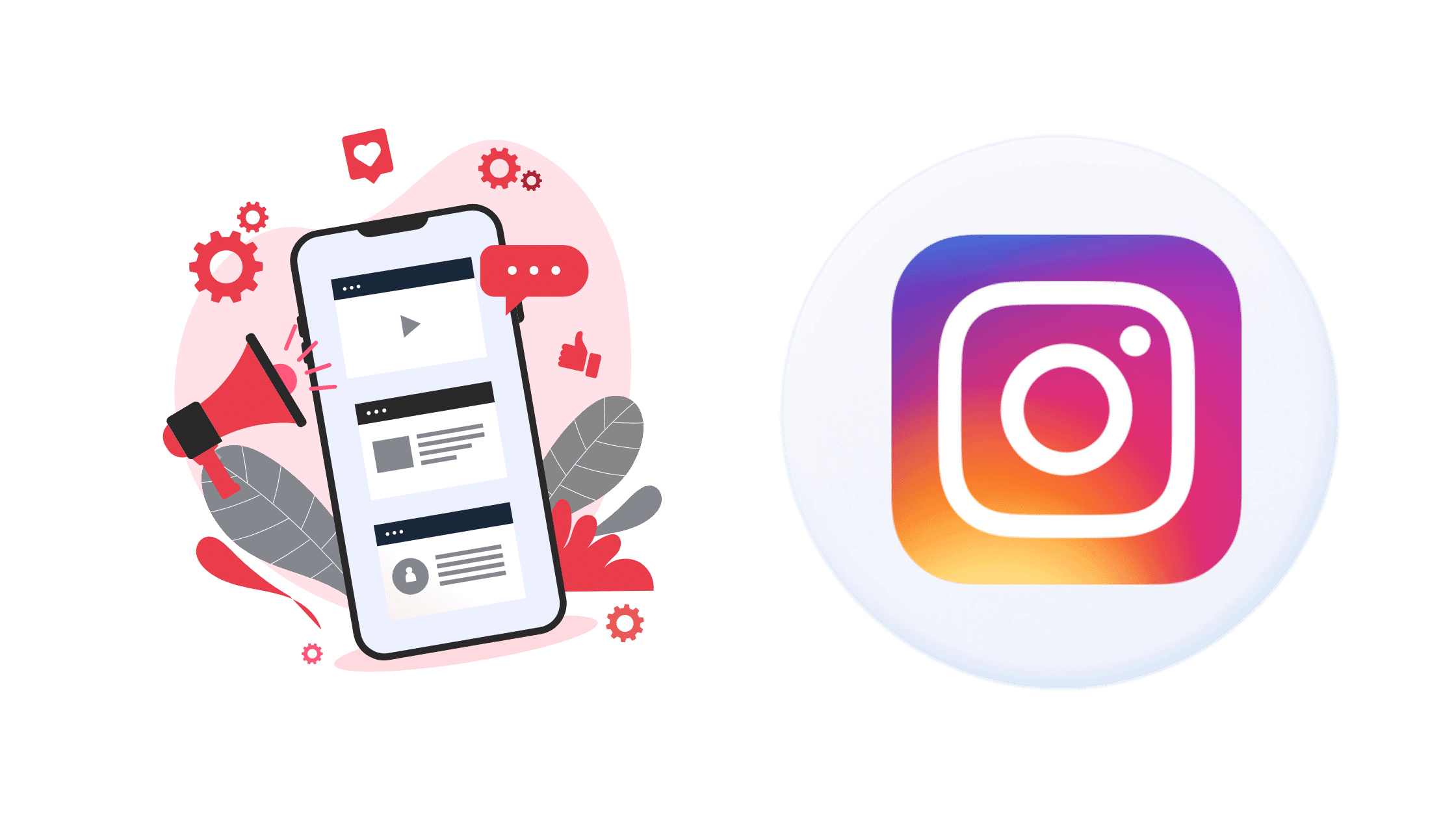
Active users: 1 billion+ | Can blog on-platform? Yes | Character limit: 2,200 (Descriptions)
Instagram is incredibly popular among bloggers operating in various high-value niches. The home of the ‘influencer,’ Instagram is the go-to for bloggers hoping to make it big. The Lifestyle niche thrives on Instagram, backed by big-money food, fashion, travel, beauty, health, and fitness brands. Creators are leveraging the platform to market their content and search for potential sponsorship opportunities.
While your posts will still shape up as image or video-based, you can link your blog to the bio of your Instagram profile. Bloggers can also add written content of up to 2,200 characters (around 500 words) into their posts’ descriptions, though links to blogs can only go into bios.
- Best for: Influencer bloggers & those looking to engage visually with their audiences around a focused niche topic.
- Top niches: Travel, Food, Health & Fitness.
- Used for: Tapping into specific, younger niche markets & growing a following around your brand.
- Top feature(s): Instagram Stories, Reels, & the ability to post links here.
This guide on how to start a successful Instagram blog will get you up and running in no time.
6. LinkedIn

Active users: 875 million | Can blog on-platform? Yes | Character limit: 120,000 (articles)
LinkedIn is the ‘professional’ social media platform for bloggers looking to promote their blogs in a more business-focused environment. LinkedIn works similarly to Facebook, allowing you to include links to your blog in various posts, but bloggers can add far more detail around a blog’s authority and expertise potential.
You can use your LinkedIn profile as a CV for your blog, opening the doors for sponsorship opportunities or attracting potential clients for whom to create content. The platform also allows you to create entire articles ‘written’ by your blog’s page.
- Best for: Bloggers with goals to scale their business online. Reaching out to a business-minded community in a professional environment & finding potential clients.
- Top niches: Finance, Business, Wealth & Careers.
- Used for: Showcasing your authority & expertise while connecting on a more professional level.
- Top feature(s): LinkedIn Articles, where you can essentially blog long-form content directly to the community. Google won’t see this as duplicate content, either.
If you’re considering using LinkedIn as a blogging platform, ensure you’re doing so for the right reasons.
7. YouTube
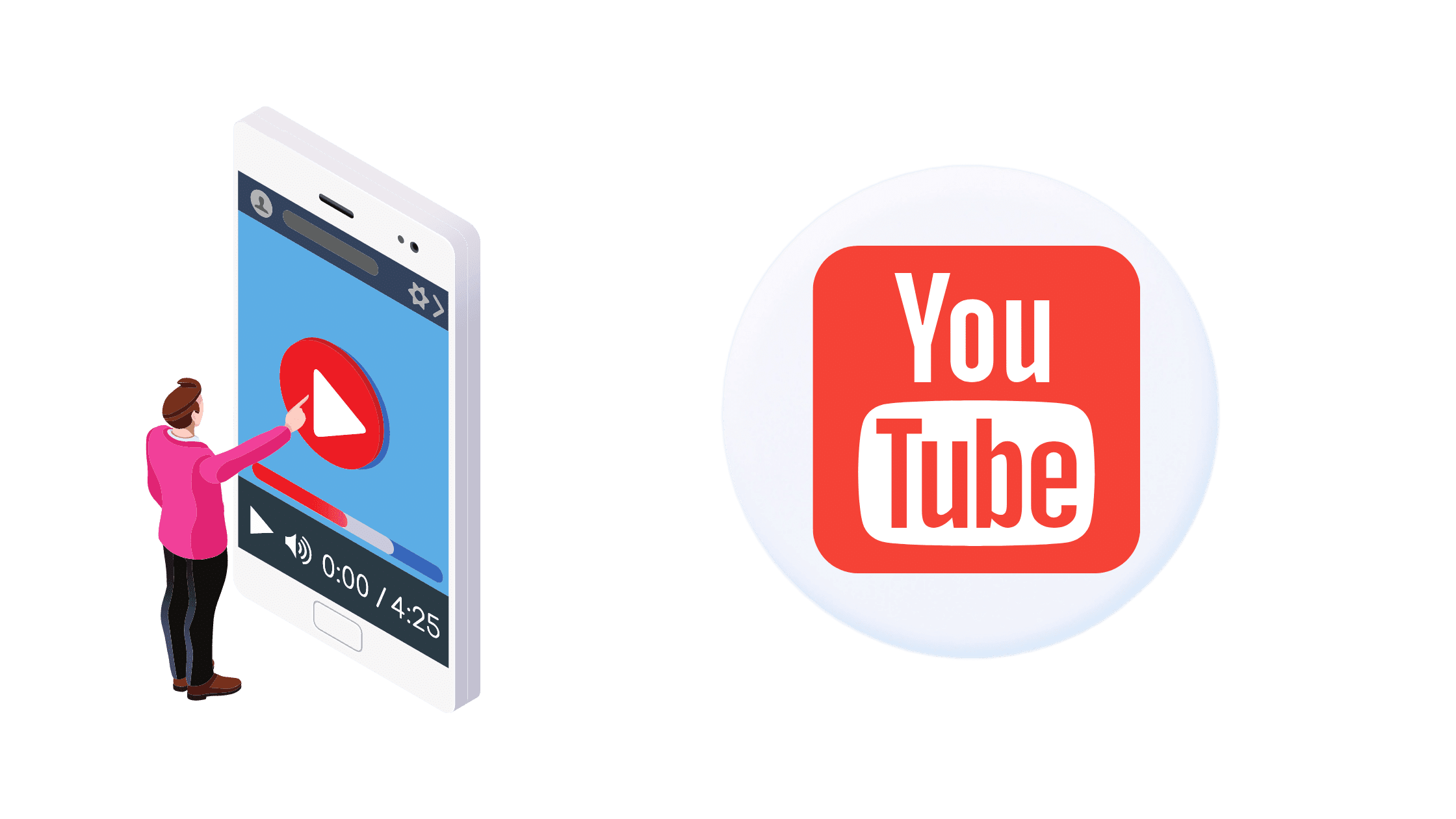
Active Users: 2 billion+ | Can blog on-platform? No | Character limit: 5,000 (Video descriptions)
YouTube is another social media titan that, while not the first blogging with social media option for most bloggers, can become a powerful engagement channel, traffic driver, and trust-builder for your blog. YouTube is the home of video and, with video engagement rates far higher than written content, makes for the ideal community-building platform.
Bloggers can break down long-form blogs into short, bite-sized videos, optimize for SEO (YouTube is the world’s 2nd-largest search engine), and even generate revenue on the platform.
- Best for: Bloggers offering instructional or ‘how-to’ blog content. YouTube is also optimal for directly engaging with watchers & asking them to visit your blog.
- Top niches: Education; Music; Reviews.
- Used for: Developing a video alternative to your blog (especially if you want to convert your blogs into video scripts) and building an audience for your brand.
- Top feature(s): Embedding YouTube videos in your blog posts & the ability to monetize YouTube video content by directing people to videos through sponsored content & display ads.
Read this article if you’re still undecided about the potential of YouTube as one of the social media sites for blogging that aligns best with your social media strategy.
8. TikTok
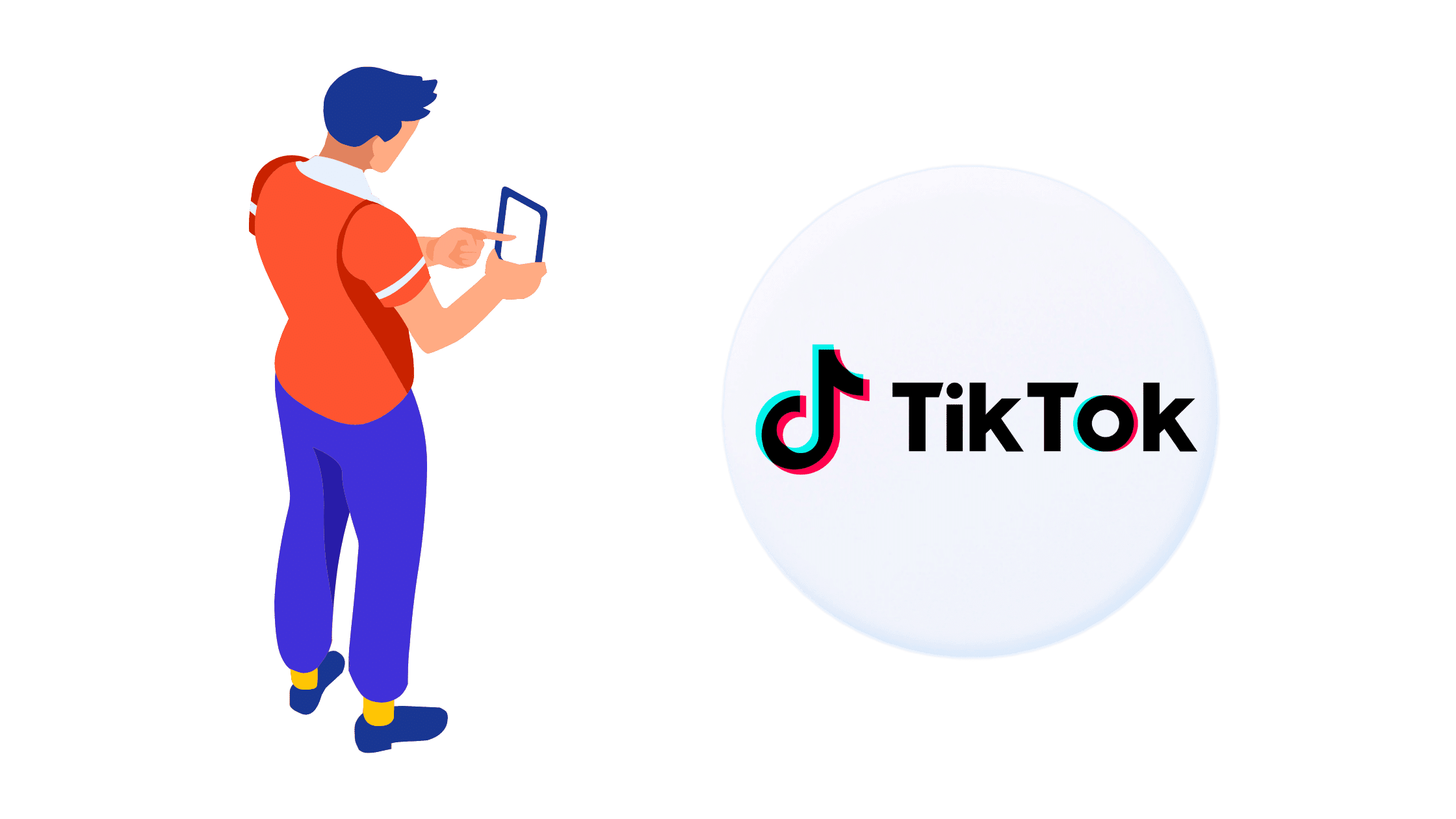
Active Users: 834 million | Can blog on-platform? No | Character limit: 2,200 (Descriptions)
TikTok hasn’t been around for long. But the platform is making waves as one of the fastest-growing social media options around. Creators are thriving on the China-based short-form video platform, and bloggers can get in on the action, too – both to drive traffic to their blog and make money.
TikTok’s algorithm works differently from other platforms in that anyone – even those with very few followers – can enjoy the same level of post exposure as top influencers. The platform lets you link your other social media profiles, and you can add your blog’s link to your bio.
- Best for: Bloggers looking to access a younger, more diverse audience and to promote their blog through more accessible short-form videos.
- Top niches: Entertainment; Current Trends; Young Lifestyle.
- Used for: Cross-promoting your blog across other platforms and gaining more exposure for your blogging brand within a younger market.
- Top feature(s): The TikTok Creator Fund is helping users with large followings to earn healthy revenues.
Making money on TikTok is becoming a popular option for the social media sites for blogging that pay. The TikTok Creator Fund, for example, is netting content creators (including bloggers) good income. TikTok Creator Next takes things to the ‘next’ level. This article will tell you everything you need to know about it.
9. Twitter

Active Users: 354 million | Can blog on-platform? Yes | Character limit: 280 (Tweets)
While Twitter has been through some ups and downs recently, that doesn’t make it any less of a top social media platform contender for your blog. The 280-character limit on Tweets means that Twitter users spend less time on the platform than they do on others, but you can still use the ‘Twitterverse’ to make a significant impact, driving good traffic to your site.
Bloggers can post links directly to their blogs, create ‘Twitter lists’ so that their Tweets appear on the feeds of the people they want them to, and use hashtags to target the right markets. Bloggers operating in the news and current developments niches can count on Twitter to help them hit their exposure and engagement goals.
- Best for: Bloggers keen to use social media to engage with established audiences, keep them updated, and invite followers to visit their blog through a pinned link in their Twitter profile.
- Top niches: Technology; News; Economics.
- Used for: Engaging with followers in real-time and building a community around your blog.
- Top feature(s): Unique hashtags allow you to segment and target your posts & you can simply tweet links directly to your blog posts automatically.
What About The Others?
There are many other best social media platforms for bloggers that you can tap into to achieve their blogging ambitions. Some are geared towards specific audiences, others are ideal for bloggers in particular niches, and some of them aren’t considered social media platforms per se, but they still perform a similar function.
- Reddit, with its 500 million active users, will let you blog on the user-generated content (UGC) platform, providing a means for the forum’s users to reach your content with ease.
- Quora is a great place to earn traffic by answering questions and posting your blog’s link on the Q&A-centric platform.
- Snapchat is another video-driven platform that makes for an exciting storytelling space in which a blog series targeted at under-20s will thrive.
- WhatsApp is quickly evolving into a social mecca.
Conclusion
Whether you’re looking to use social media to boost your blog’s exposure, access new markets, drive fresh traffic to your site, or generate additional blog revenue, best social media platforms for bloggers represent some of the top tools with which to do it. With audiences spanning a wide range of demographics, regions, and spending potential, social media is an affordable (and mostly free) promotion tool that boosts engagement and gives your blog a valuable presence.
You can set up pages and profiles for your blog on all of these social media sites for blogging if you want, but ensure that you do so with purpose. A neglected or incomplete profile can do more harm to your blog than good, and ignoring user interactions can cause significant problems down the line. Choose platforms frequented by your niche, align your blog’s brand with your social media presence, and ensure you take advantage of these innovative platforms’ unique features and tools.
Social media can be a powerful partner for your blog – so make sure you’re getting the most out of what blogging with social media has to offer.
